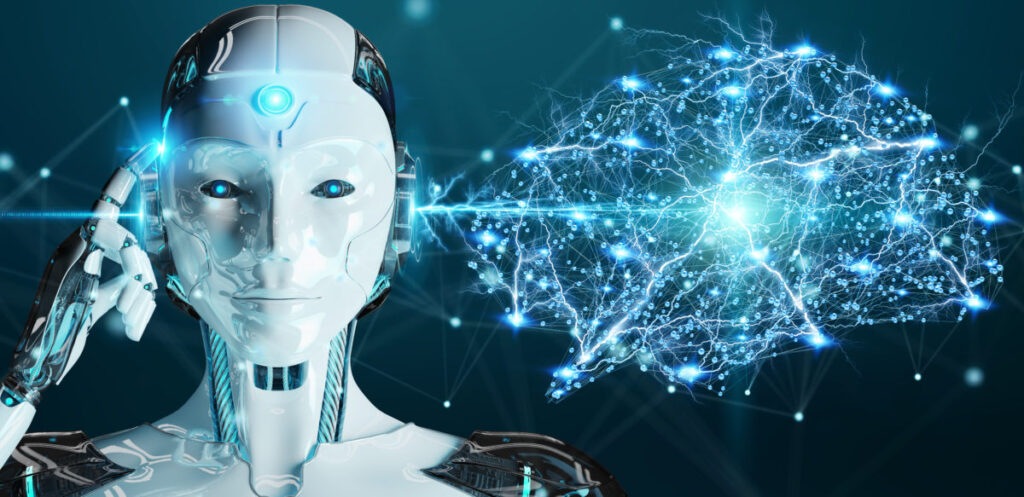Revolutionizing Healthcare: AI is transforming early detection of health conditions

By Dr. Mukesh Batra,
Chairman and Founder of Dr. Batra’s®️ Group of Companies
Pune, 14th June 2024: The healthcare industry has been enhanced by several advancements lately, with various positive developments in the space. Technology, especially artificial intelligence, is one of the foremost driving factors that has disrupted the sector to innovate in the rapidly advancing age of digital transformation. Technological advancements have reached new heights, particularly after the COVID-19 pandemic. Data sharing, AI, IoT, 3D Imaging, augmented reality (AR), virtual reality (VR) technologies, etc., have helped the healthcare sector all over India. The integration of AI into healthcare helps reduce 86% of errors, saving more than 250,000 lives every year.
Through its efforts to improve diagnostic accuracy and the early detection capabilities of various health diseases, AI has revolutionized the healthcare space, allowing more precise and proactive disease management. Due to this, healthcare providers can adopt sophisticated technologies (like Electronic Data Mining Systems and data matrix technology) to gather and analyze patient data in unprecedented ways. Let us further understand how AI aids in the early detection of health problems and ensures more effective and personalized treatments.
The inevitable role of data in healthcare
Data is integral to all aspects of patient care and is the cornerstone of modern healthcare. Electronic data mining systems and data matrix technology now enable the collection of vast amounts of patient data. However, the challenge lies in how these healthcare providers use data for patient benefit. AI becomes paramount here, as it can provide invaluable insights that were never visible to the human eye before. For example, facial images can now be analyzed through AI algorithms, and the detection of early signs of pigmentation issues has made things easier. It has enabled doctors to plan targeted treatments well in advance, further leading to significantly better patient outcomes.
AI in skin and hair health
Artificial intelligence has the capability to scan a patient’s face and analyze at least 14 parameters of the skin, such as identifying potential problems such as pigmentation issues, the biological age of the skin, or the early signs of skin cancer. It allows for timely intervention and treatment, which can be crucial for patient health and ensure increased patient retention and positive word-of-mouth referrals.
AI significantly contributes to the hair health segment through advanced tools like the Hair Pull Test. This test can accurately measure hair loss and help doctors diagnose and treat hair conditions more efficiently. Other AI-powered hair innovations in the field of Homeopathy help reform India’s hair wellness landscape by offering precision, personalised care, and predictive analysis. These Homeopathic diagnostic tools are equipped with two high-definition cameras and four types of medical-grade lights that accurately analyse scalp issues, predict hair loss progression, and recommend tailored treatments for optimal results.
Innovations in respiratory and allergy test
In respiratory health, AI models can enhance the efficacy of tests like Oxylung. Oxylung, used to assess lung function in asthma patients, provides detailed insights into lung performance and allows for more precise treatment plans. Additionally, AI’s capabilities in allergy management support analyzing data from a simple blood test to determine 45 food allergens with a single prick test and treat their skin allergies and chronic skin problems like Vitiligo, Psoriasis, and Eczema specific, enabling personalized treatment plans. AI has transformed specialized areas of healthcare by offering patients more personalized and effective solutions that are often missing in traditional health diagnostics.
For example, in the field of Homeopathy, AI-driven medicine prediction models aim to match patient symptoms with the most suitable homeopathic remedies, enhancing treatment efficacy and ensuring a more individualized approach to care.
Digital transformation in healthcare
The healthcare industry has converted to digital, and Electronic Health Records (EHRs), telemedicine services, and various health apps play an essential role in driving this transformation. These medical advancements have made healthcare more accessible, efficient, and hassle-free. This massive transformation, driven by AI, has not just digitized records but also significantly improved patient care. AI can sift through EHRs to identify patterns and potential health risks to allow early intervention. Furthermore, remote monitoring technologies allow doctors to track patients’ health in real time, which provides timely insights and interventions.
Challenges
Addressing challenges in healthcare
While the benefits of AI in healthcare are clear, several challenges must be addressed. Data security is paramount, as patient data must be protected from breaches and unauthorized access. To safeguard sensitive information, healthcare providers must be vigilant and invest in robust cybersecurity measures.
Additionally, the transition to digital healthcare requires training for doctors and healthcare workers to use new technologies effectively. Overcoming these challenges is essential to fully realizing the potential of AI in healthcare.
Ensuring patient confidentiality
Patient confidentiality remains a cornerstone of medical ethics, and the digital transformation of healthcare must not compromise this. Advanced encryption techniques can protect patient data during storage and transmission, ensuring that it remains confidential and secure. Electronic Medical Records (EMRs), when properly encrypted, can centralize patient information, streamline care coordination, and minimize errors, all while maintaining patient trust.
The future of AI in healthcare
The future of healthcare directs the seamless integration of AI into everyday medical practice. As AI technology continues to flourish, its applications will become even more sophisticated, providing deeper insights into patient health and enabling more precise treatments. The journey towards a digitally empowered healthcare system extends beyond adopting new technologies and expands to upholding ethical standards and maintaining patient trust.
By boosting diagnostic accuracy and facilitating timely interventions, AI has the capacity to save numerous lives and elevate the standard of care. To address the accompanying challenges and ethical concerns, the incorporation of AI in healthcare indicates a future where early detection and personalized medicine are standard practices, leading to a healthier global population.








